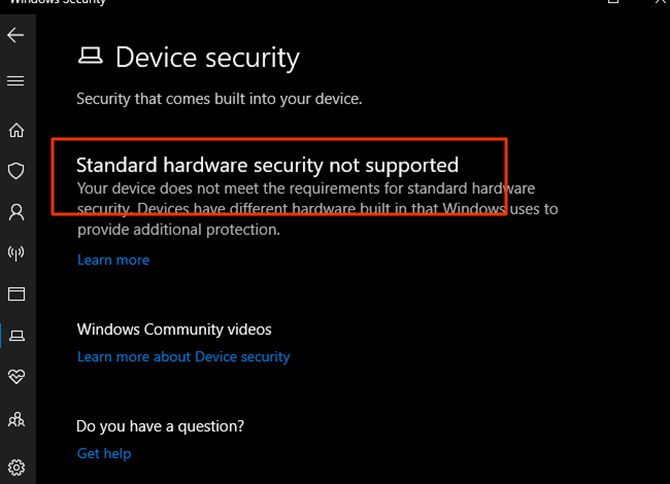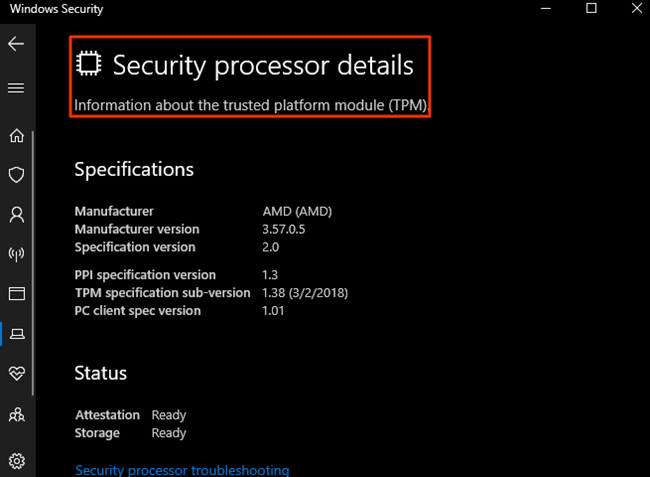What is AMD CPU fTPM? Everything You Need to Know
What is AMD CPU fTPM?
The Trusted Platform Module (TPM) is an international standard for securing microprocessors, aiming to provide extensive hardware security. Before discussing AMD CPU fTPM, it's essential to have a basic understanding of TPM. AMD CPU fTPM is likely related to this concept. Let me know if you want me to continue.
TPM (Trusted Platform Module) uses integrated cryptographic keys to provide security to CPU hardware, with five different types available for various purposes, each with distinct properties.
Here are the names of types of TPM.
- Discrete TPMs
- Integrated TPMs
- Hypervisor TPMs
- Software TPMs
- Firmware TPMs (fTPMs)
Firmware TPM, or fTPM, is a solution that runs in a safe environment on a CPU, specifically addressing software bugs in the processor's software, and is used by companies like AMD and Intel for hardware security.
AMD's CPU-based fTPM uses system firmware to provide a trusted module for hardware protection, as opposed to a separate TPM chip.
How does AMD fTPM work?
As a computer user, you're likely familiar with the frustration of being unable to boot your device, especially when a Bitlocker password is required. The standard Trusted Platform Module (TPM) doesn't allow users to access their boot drive or decrypt it without entering the correct password, making it a crucial step in the boot process.
AMD fTPM allows a person to decrypt the boot drive without a password by enabling fTPM in their AMD processor after checking BIOS settings.
By decrypting and re-encrypting the boot drive without a password, you can enable fTPM on an AMD motherboard, making it easier to manage your machine without having to check for a password every time. This process allows for a seamless and convenient way to utilize fTPM, making it more user-friendly.
AMD fTPM VS Intel PTT
Both AMD fTPM and Intel PTT are sister technologies used in computer systems for secure boot and trusted computing. They provide a secure environment for the operating system to run in, preventing unauthorized software from running. Both technologies use a Trusted Platform Module (TPM) chip to store and manage cryptographic keys, and both support the UEFI firmware standard. The main difference between the two is that AMD fTPM is based on the AMD-specific TPM 2.
Both Secure Boot and Trusted Platform Module (TPM) are designed to secure the microprocessor and protect data from unauthorized access, serving the same core purpose.
Both AMD and Intel security modules share a similarity in that they are installed directly in the CPU, eliminating the need for an external physical hardware device. This means you don't need to look for any physical module to connect externally with them.
While AMD and Intel both offer trusted platform modules (TPMs), the differences lie in their implementation. AMD's fTPM is software-only, providing a processor with complete access to hardware security, whereas Intel's PTT is a hardware-based solution that limits the CPU's access to the TPM. This distinction affects how each technology works and is used in various applications.
It uses PSP or Platform Security Processor for extra security, leaving control over security to the dedicated security module, and saving data in AMD chips even if removed from the motherboard.
Intel PTT provides full control over software, hardware, and external devices, allowing it to manage everything from the CPU to BIOS, giving it a broader range of capabilities than traditional software-only PTT.
The main difference between AMD fTPM and Intel PTT is that they have different security features. However, both technologies have their own benefits and are superior in their respective areas. As a result, it's not accurate to say that one is better than the other, as each has unique properties that the other lacks.
How do I enable AMD CPU fTPM?
AMD CPU fTPM is disabled by default. If it's still not enabled, you'll need to follow the specific steps for your system to enable it.
- Repeatedly press the "del" or "F2" key on the startup
- Choose the "Advance" option
- Look for "CPU Configuration" and enter that section
- Tap on "AMD fTPM switch"
- Choose "AMD CPU fTPM" from the list
- Check for the Exit tab and save changes

To enable AMD CPU fTPM in your device's motherboard, follow these steps. If you want to confirm if fTPM has been activated or not, you can also check by following additional steps.
- Go to Windows Security
- Open Device Security
- "Standard hardware security not supported"shows this

- You need to repeat the process of enabling fTPM and then running the command to check if it's enabled. It's not enabled yet.
- If you see a page with the name "Security Processor Details", it is likely that the system is trying to inform you about the security processor, which is a component that handles sensitive operations, such as encryption and decryption, in a secure manner. This page might be displayed to ensure that the security processor is functioning correctly and that your system's security is up to date.

- It shows that fTPM has been enabled on your CPU.
How to fix AMD fTPM stuttering issues?
AMD has discovered issues in some of its processors, including the excessive transfer of fTPM-related memory to SPI flash memory on the motherboard, causing systems to instantly pause.
Many users have reported issues with a recent problem in the past few months, causing discomfort due to system pauses or slow responses. Fortunately, AMD has recently resolved this issue and is set to launch an updated BIOS with an enhanced fTPM module.
To address issues with AMD systems, consider using a trusted platform that leverages hardware TPM to provide a smooth experience. This solution can be implemented instantly, offering a temporary fix until a more comprehensive solution from AMD becomes available.
In closing
With the discussion above, you can easily enable extended security for your hardware by following the steps to enable AMD CPU fTPM, which is different from Intel PTT, and can be done within a few minutes.
Related Articles
- What Is Differential Backup? Definition and Comparison
- What is USB-C? [2022 All You Need to Know]
- Windows File and Folder Permissions Guarantee Your File and Folder Security [You Must Know]
- Difference Between Cloud Sync and Backup and Cloud Storage